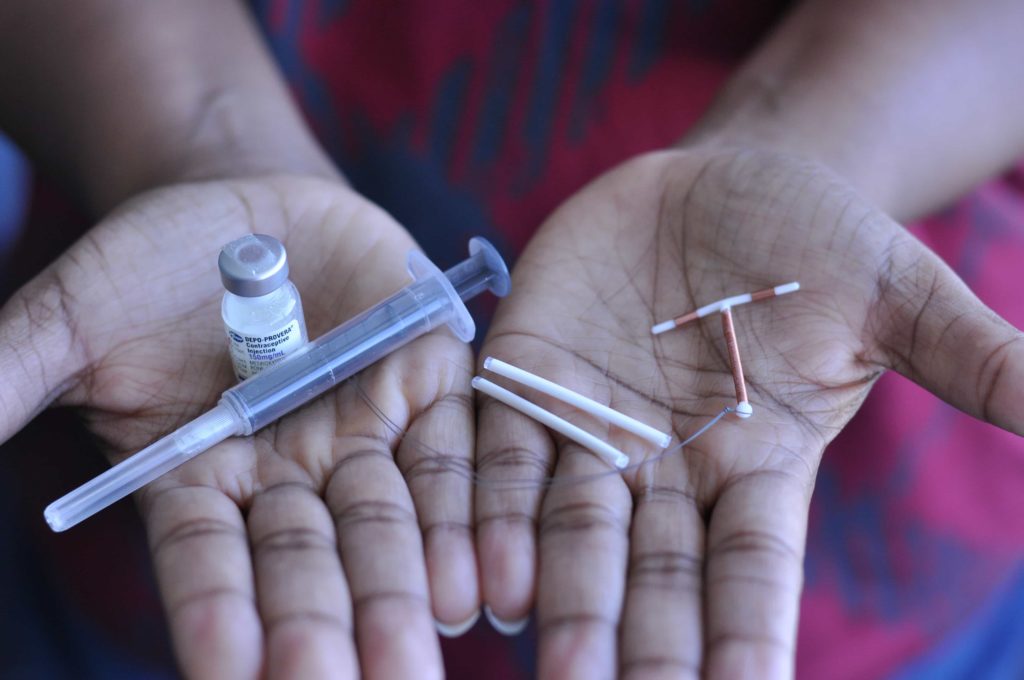Unfinished Business for Access to Contraception and HIV Prevention

The landmark Evidence for Contraceptive Options and HIV Outcomes (ECHO) Study is the first large-scale randomized clinical trial to investigate the relationship between the use of hormonal family planning methods and the risk of HIV acquisition–a double burden far too many women still face. Although the study’s results have yielded valuable information, our colleagues at FHI 360 explain that there is still plenty of work to do.
Great strides have been made in expanded access to family planning care and HIV prevention services; however, women continue to suffer the dual burdens of unintended pregnancy and HIV infection. Concerns that contraception itself might increase the risk of HIV acquisition led to the design and implementation of the landmark ECHO trial. ECHO was a randomized clinical trial comparing HIV incidence, adverse events, and pregnancy rates among 7,829 African women randomized to three licensed contraceptive products: intramuscular depot medroxyprogesterone acetate (DMPA), a copper intrauterine device, and a levonorgestrel implant. The results were presented at a conference in Durban, South Africa in June 2019 and published in The Lancet. HIV incidence was similar across the three groups and all methods were safe and highly effective. In light of the ECHO results, the World Health Organization (WHO) convened an expert group to review the data on contraceptive eligibility for women at high risk for HIV acquisition and issued updated guidance in August 2019, which indicated that all trial methods could be safely used by women at high HIV risk.
The ECHO study identified a very high overall HIV incidence of 3.8 per 100 women-years among the young study participants (median age 23 years) seeking contraception in the four study countries: Eswatini, Kenya, South Africa, and Zambia. This alarming finding among women who were provided HIV prevention services, including STI screening, condoms, and pre-exposure prophylaxis (PrEP) later in the trial, tempered the encouraging news of no difference in HIV risk by contraceptive method. Discussion of this finding led to calls for urgent and aggressive measures to expand women-centric HIV prevention services, including PrEP, for women in family planning programs. The findings also supported expanded access to the full range of contraceptive products for women at high HIV risk. WHO initiated a concerted effort to support country programs, especially in Africa, to act aggressively on the ECHO findings to enhance FP-HIV integration.

Now, in 2021, we are confronted with the additional challenge of the COVID-19 pandemic on access to both family planning care and HIV prevention services. With regard to family planning, important steps to maintain access to critical family planning care for women and girls include using telehealth for counseling, screening, method provision, and side effects management; extended use of IUDs and implants; and self-administration of Sayana Press (DMPA-SC). Unfortunately, many programs have seen drops in attendance and early signs of increased pregnancy rates among young women.
The COVID-19 pandemic has also challenged HIV prevention, care, and treatment programs. In many areas where women are at greatest HIV risk, scale up of PrEP is still at an early stage. Linking PrEP services with family planning offers a “win-win” opportunity. The recent European Medicines Agency endorsement of the dapivirine vaginal ring for HIV prevention for women in high HIV burden settings should lead to a complementary prevention approach in addition to safer sex practices when women cannot take or do not have access to oral PrEP. Additionally, the HIV Prevention Trials Network recently announced that a trial evaluating the safety and efficacy of long-acting injectable cabotegravir (CAB LA) for PrEP in women in Africa was stopped early by the Data and Safety Monitoring Board when CAB LA was found to be superior to oral PrEP in preventing HIV acquisition. The addition of a long-acting injectable PrEP agent to the prevention toolbox should help mitigate access and adherence challenges. Moreover, the 8-week injection schedule can be synchronized to injectable contraceptive provision. Ongoing research will hopefully yield multipurpose technologies that prevent both pregnancy and HIV.
At the completion of the ECHO study, the greatest fear of study investigators was that the world of family planning and HIV prevention would return to business as usual, and not continue to act on the critically important findings for women’s health. Now, with the triple threats of COVID-19, HIV, and unintended pregnancy, we must move decisively to assure that the fear of returning to business as usual, or even business less than usual, is not realized.
To learn more about how to adapt family planning and contraceptive access in the current pandemic context, check out our COVID-19 content.




